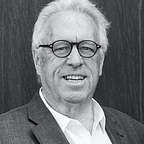Visions, Voices and Vocations. How Do We Know What We Want?
“The longest journey is the journey within”
Dag Hammarskjöld
150km west of Athens, on the steep slopes of Mount Parnassus lie sprawled the ruins of the Temple of Apollo at Delphi. Ancient writers tell us that the words; “Know Thyself” were once inscribed on the portal above the temple entrance, although they have now long vanished, eroded by time and neglect.
Variously attributed to a host of ancient notables; Socrates, Pythagoras or Heraclitus, the aphorism implies we understand life best if we understand ourselves. Self-knowledge in turn leads to tolerance and acceptance of others, which segues appropriately to a further inscription carved into the temple’s edifice; “Nothing to excess” a dictum — propounded by philosophers since time began — for a long and healthy life.
This raises a couple of points, firstly, not much has changed in human nature over the past 2000 years and secondly, we all need meaning in our lives, or at least a datum point from which to take headings for the journey. It’s said there are two important dates in our lives, the first being the day we are born, the second is the day we figure out why.
For some, meaning comes through an epiphany, often triggered by a momentous event or some kind of trauma, the conversion of St Paul on the road to Damascus being one of the better-known transformations.
Throughout the ages, mystics and religious figures, saints and charlatans alike, have attributed their callings to epiphanies or divine revelation and many creeds and cults have been born.
From Abraham’s rather bizarre encounter — when God asked him to sacrifice his son Isaac, to Moses’ encounter with the burning bush, and later Mohammed’s revelations from the Angel Gabriel, there is a recurring theme of bright lights and voices having sparked or inspired many religious movements. Similarly, the visions reported by Ellen G Smith, the Founder of Seventh Day Adventism, and the purported meeting with the angel Moroni in New York State by Joseph Smith, Founder of the Mormon Church, reinforced a perception of divinity. However, recent medical knowledge has ascribed other causes to these revelations. Seeing bright lights, hearing voices and suffering temporary blindness are all indicators of temporal lobe epilepsy, sometimes leading the sufferers to profound spiritual insights. Through ignorance our ancestors ascribed its occurrence to divine rather than natural causes.
For much of the last 2000 years this perspective prevailed, echoing the Babylonian view of epilepsy being “The Sacred Disease.” Hippocrates described it thus, although he believed it was not sacred, but a brain disorder. Hippocrates’ view of epilepsy did not begin to gain credibility until the 18th and 19th centuries. The intervening 2000 years were dominated by the earlier supernatural views.
Throughout this time, although some people with epilepsy were viewed with misunderstanding and treated as outcasts, many succeeded and became world famous; Julius Caesar, Lenin, Napoleon, Czar Peter the Great, Pope Pius IX, Fyodor Dostoevsky, Lord Byron, Joan of Arc and the prophet Ezekiel all feature in that pantheon. Socrates, Pythagoras and Aristotle are also presumed to have been sufferers — although such retrospective diagnosis is only based on anecdotal evidence.
While we can’t all have visions and revelations to gain insights into our inner consciousness, there is a simple method that we can practice to help know ourselves. All that is required is an honest answer to each of three questions.
Firstly; “What don’t we want?” We are very lucky if we know exactly what we want to do in life; in this day and age we are spoilt for choice. It’s probably easier to eliminate the things that we don’t like than it is to be clear about what we do want. In a complex world of countless opportunities, we can narrow our choices and ‘get in the zone’ by setting aside the things that turn us off. For example, we may love sedentary things and hate action, we may love words but hate numbers. We may hate filling in bureaucratic forms; we may love music and art and hate business and bureaucracy. But we need to think about it. When we come to a conclusion, we should write our thoughts down. Seeing things on paper makes them real.
Secondly; “What do we want out of it?” Once again it should be things that are top-of-mind. And it will undoubtedly change at different stages of life. Is it, self-centred things like money, power, fame or wealth; or things more altruistic, a chance to save the planet, help others, plant trees? Is it a combination of a number of things?
Thirdly; “When are we at our best?” We need to be in touch with our biological clocks — our circadian rhythms, as well as our social preferences. ie; Are we fowls or owls — are we at our best in the morning or at night? Are we indifferent to the time of day? Are we happiest in the city or in the country; on a mountain or at the beach; Do we work best in isolation — autonomously, or collectively — as in a team? If we do like working in a team, what kind of team; a relay team where we run a leg on our own then pass on the baton, or a football or basketball team where we act in concert with others?
The answers to these three questions will give us a framework of preferences, enabling us to make decisions that will satisfy our inner aspirations.
Who knows, when we get it right, we might even get to be happy!
